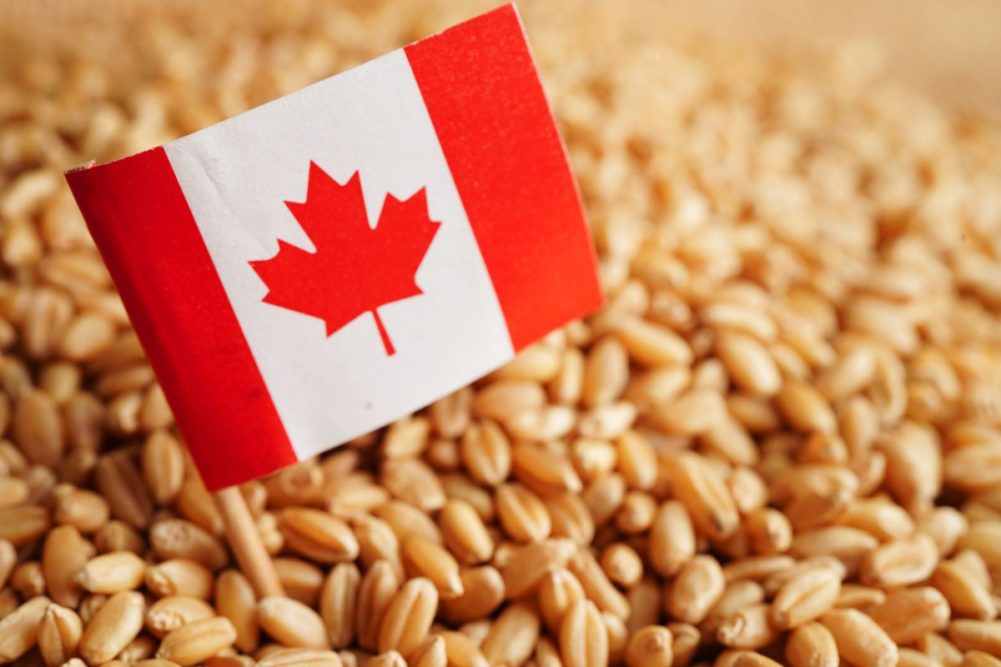CHARLOTTETOWN, PRINCE EDWARD ISLAND, CANADA — The government of Canada will invest up to C$3.04 million over five years to support research for grain and oilseeds producers in Atlantic Canada with unique regional issues such as growing conditions, production challenges and agronomy.
The funds will be provided to the Atlantic Grains Council through the AgriScience Program – Projects Component, an initiative under the Sustainable Canadian Agricultural Partnership. Researchers will explore ways to adapt to a changing climate and enhance soil health, while improving the production and quality of grains and oilseeds to remain sustainable and competitive into the future.
One of the key project activities is the Yield Enhancement Network (YEN). The YEN helps local farmers better understand their yield potential and discover limits to achieving that potential. The YEN also provides a real-time snapshot of the trends affecting the production, yield, quality and environmental impacts of grains and oilseeds. It is an important information tool to help producers fully understand their crop performance.
“The agricultural sector is an important economic driver for our region,” said Heath MacDonald, member of Parliament, Malpeque, Prince Edward Island, who announced the funding July 11 on behalf of Agriculture and Agri-Food Canada. “These hard-working men and women need access to resources to ensure they stay on the cutting edge. With this funding to the Atlantic Grains Council, scientists will be focusing on issues important for farmers, to provide the best possible outcomes.”
In addition to the AgriScience Program investment, Agriculture and Agri-Food Canada and the provincial departments of agriculture in the Maritimes are jointly investing an additional C$1.25 million in Sustainable Canadian Agricultural Partnership funding in the project, which is cost-shared 60% federally and 40% provincially.
There are 233 grain and oilseeds farms in Atlantic Canada, which generated approximately C$113.8 million for producers in 2023. So far in 2024, more than 270,000 acres of barley, canola, grain, corn, oats, rye, soybeans, and wheat have been planted in Atlantic Canada, with the majority of grains and oilseeds crops providing feed for livestock and aquaculture sectors.
“As a farmer myself, I know firsthand the challenges that producers can face when it comes to getting their top-quality products to market,” said Lawrence MacAulay, minister of Agriculture and Agri-Food. “By investing in research that helps producers better adapt to the unique climate and soil conditions here in Atlantic Canada, we can help them increase their production and stay competitive.”
The Atlantic Grains Council, incorporated in 1984, has a focus on research and represents all grain and oilseed producers in the Atlantic region, including wheat, corn, soybeans, oats, barley and peas. The council serves the interests of grain and oilseed producers by coordinating research that reflects the priorities of local producers and recognizes the uniqueness of the region’s growing conditions.
The AgriScience Program, under the Sustainable Canadian Agricultural Partnership, aims to accelerate innovation by providing funding and support for pre-commercial science activities and research that benefits the agriculture and agri-food sector, and Canadians.
“As producers, we face many challenges as we produce our crops, adapt to climate change and address food security,” said Roy Culbertson, chair, Atlantic Grains Council. “We need research to help find a path forward. I want to thank Agriculture and Agri-Food Canada for supporting this project through their programs and their science team, the provinces for their contribution, and to the producers who contribute their Research Check-off contributions.”





